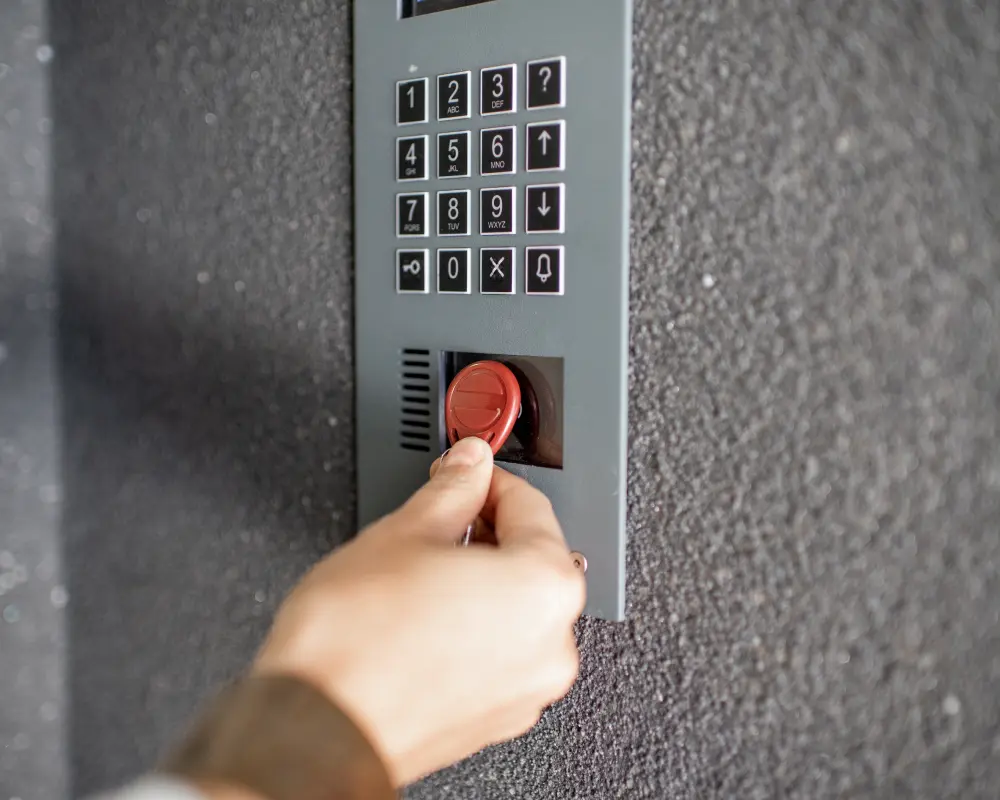
Why are access control systems necessary for businesses?
Access control systems are integral to modern security protocols within various businesses and organisations, ensuring that access to specific areas is granted only to authorised individuals. Access control systems range from simple electronic keypads that secure a single door to complex networked systems that manage multiple access points and integrate with other security measures.
Understanding Access Control Systems
An access control system functions primarily to control who can enter or exit certain areas within a facility. Door access control systems and door access control technologies include keypads, card readers, biometrics, and more recently, mobile-based authentication methods that ensure secure, keyless entry. Access control entry systems are crucial for maintaining the security of buildings and sensitive information.
Why Access Control Systems Are Necessary for Businesses
Access control systems are vital for businesses for several reasons:
- Security: They provide a means to secure certain areas within the business premises, especially where sensitive information or valuable equipment is stored.
- Safety: In case of emergencies, modern access control solutions can restrict access to hazardous areas or facilitate the safe evacuation of premises.
- Operational Efficiency: Automated access control systems reduce the need for manual security checks and can be integrated with other systems like payroll to monitor employee attendance.
- Compliance: Many businesses are required by law to protect client data and confidential information. Access control systems help ensure compliance with these regulations by securing access to areas where sensitive data is stored.
The Importance of an Access Control Policy
An access control policy is essential for defining who has access to different levels of information and areas within a business. It serves several critical functions:
- Clarity and Accountability: A clear access control policy ensures that employees understand their access rights and responsibilities, which helps prevent security breaches.
- Regulatory Compliance: For businesses that operate under stringent regulatory requirements, having a documented access control policy is crucial for audits and compliance.
- Risk Management: An effective policy helps in assessing risks associated with access permissions and establishes protocols to mitigate these risks.
Implementing a Role-Based Access Control System
Role-based access control (RBAC) is a widely used approach where access rights are assigned based on the roles of individual users within an enterprise. This method simplifies management and adds a layer of security by minimising access rights for any user to the bare minimum necessary to perform their job.
- Efficiency: RBAC systems are efficient because they do not require unique specifications for each user. Instead, users are added or removed from roles that have pre-defined permissions.
- Consistency: This method ensures consistent application of access permissions, especially in large organisations with many users and complex access needs.
Why Do You Need an Access Control Policy?
Implementing an access control policy is essential for several reasons:
- Prevent Unauthorised Access: It helps in proactively preventing unauthorised access to sensitive areas and information, thereby enhancing the overall security posture of the organisation.
- Manage and Monitor Access: Policies provide frameworks for the ongoing management and monitoring of access rights, which can change as employees join, move within, or leave the organisation.
- Enhance Security Protocols: A robust policy forms the backbone of a company’s security protocols, integrating with other security measures to provide comprehensive protection.

Choosing the Right Access Control Solutions
When choosing access control solutions, it’s important to consider:
- Scalability: The system should be able to grow and adapt to the changing needs of the business.
- Integration: It should integrate seamlessly with other systems such as CCTV, alarm systems, and operational software.
- User-Friendliness: Systems need to be user-friendly to ensure that they are used consistently and correctly by all staff.
Why Choose Vale Fire and Security for Access Control Solutions
Vale Fire and Security offers state-of-the-art access control solutions tailored to meet the specific needs of various businesses. With a focus on innovation and reliability, Vale Fire and Security provides:
- Comprehensive Security Solutions: From role-based access control systems to advanced biometric technologies.
- Customised Integration: Vale Fire and Security systems are designed to integrate smoothly with existing security infrastructures.
- Expert Support: Vale Fire and Security provides ongoing support and maintenance to ensure that access control systems function optimally.
Access control systems play a crucial role in the security and efficiency of modern businesses. With the right access control policy and technology in place, organisations can protect their assets, ensure employee safety, and meet regulatory requirements effectively. Vale Fire and Security stands ready to help businesses achieve these objectives with cutting-edge access control solutions.
Follow us on Facebook and LinkedIn, or read more posts here.